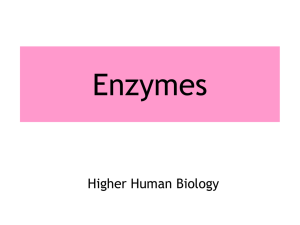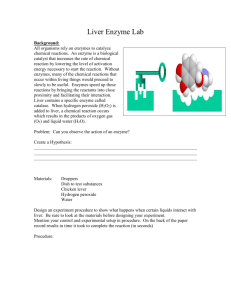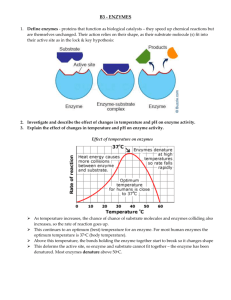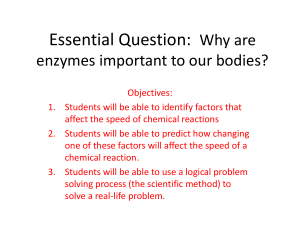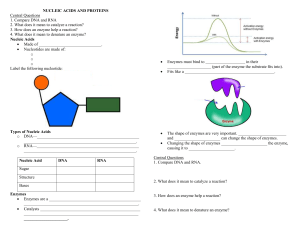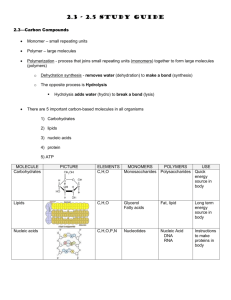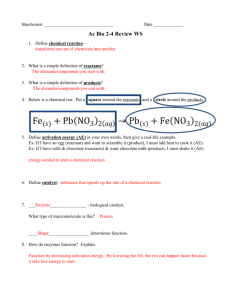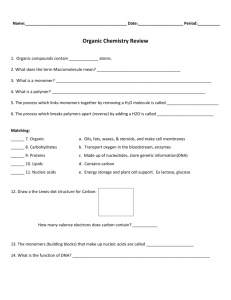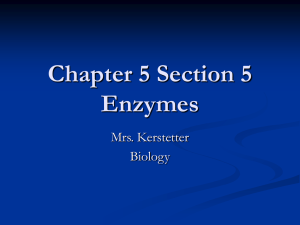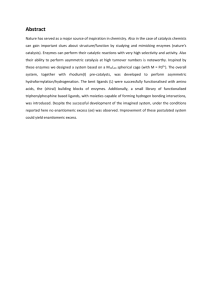Enzyme.Worksheet
advertisement
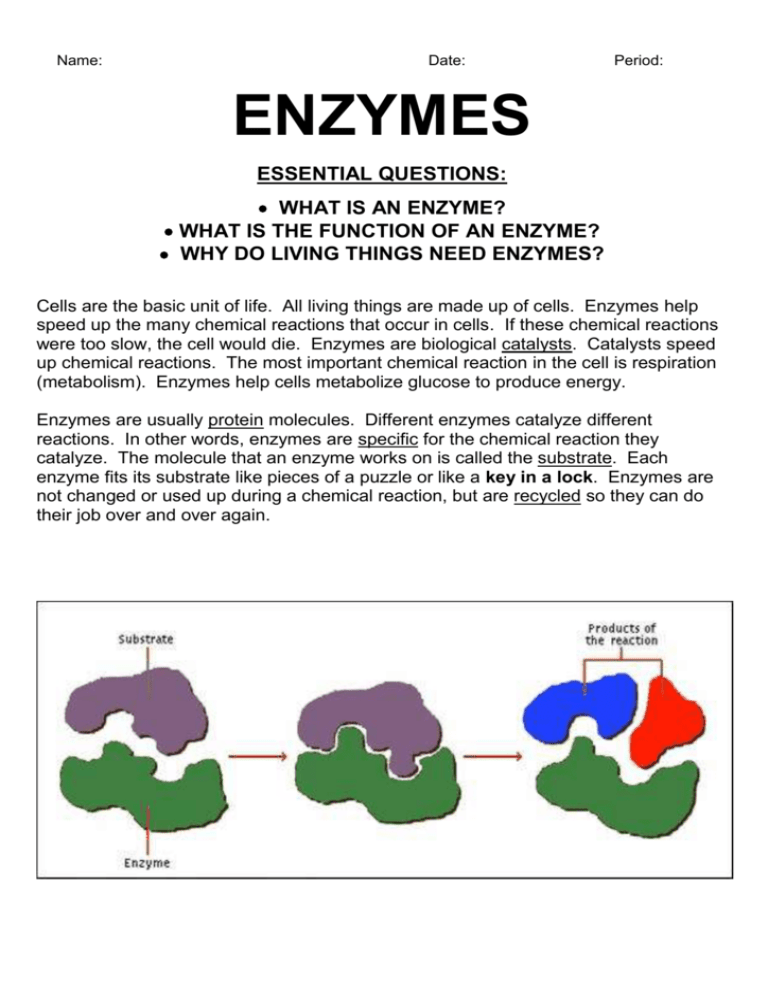
Name: Date: Period: ENZYMES ESSENTIAL QUESTIONS: WHAT IS AN ENZYME? WHAT IS THE FUNCTION OF AN ENZYME? WHY DO LIVING THINGS NEED ENZYMES? Cells are the basic unit of life. All living things are made up of cells. Enzymes help speed up the many chemical reactions that occur in cells. If these chemical reactions were too slow, the cell would die. Enzymes are biological catalysts. Catalysts speed up chemical reactions. The most important chemical reaction in the cell is respiration (metabolism). Enzymes help cells metabolize glucose to produce energy. Enzymes are usually protein molecules. Different enzymes catalyze different reactions. In other words, enzymes are specific for the chemical reaction they catalyze. The molecule that an enzyme works on is called the substrate. Each enzyme fits its substrate like pieces of a puzzle or like a key in a lock. Enzymes are not changed or used up during a chemical reaction, but are recycled so they can do their job over and over again. Summary Questions: ENZYMES ARE USUALLY: ___________________________________________ MOLECULES. ENZYMES ARE VERY _________________________, ONLY WORKING WITH ONE TYPE OF MOLECULE OR CHEMICAL REACTION THE FUNCTION OF AN ENZYME IS TO : _______________________________________ THE SPEED OF CHEMICAL REACTIONS. ANOTHER NAME FOR SOMETHING THAT INCREASES THE SPEED OF A REACTION IS A: _____________________________________________________. THE MOLECULE AN ENZYME WORKS ON IS CALED THE: _____________________________. ENZYMES AND SUBSTRATES FIT TOGETHER LIKE A ____________ AND A _____________. ENZYMES ARE: _______________________________________ DURING A CHEMICAL REACTION, SO THEY CAN DO THEIR JOB OVER AND OVER AGAIN.
